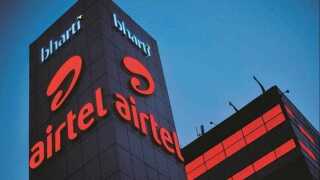Singapore’s economy obligingly vindicated this gesture, expanding at a record 14.7% rate during 2010, driven in particular by an upsurge in output from the country’s manufacturing industry. On the negative side, much of the city state’s economy remains founded on external trade, making it sensitive to global ups and downs beyond its control.
The country’s market for IT and communications services is one of the shining lights of a booming economy, says Peter Evans, senior analyst for Asia with consulting firm BuddeComm. “Singapore is one of the outstanding telecommunications markets in Asia,” he claims. “At the same time as building its sophisticated telecoms infrastructure, Singapore has successfully promoted itself as an IT hub and a place of excellence when it comes to all things to do with IT and telecommunications.”
This has been brought about, says Evans, partly by strong government leadership, backed by good support from telecoms service providers. Sound regulation has also helped: “A high quality and extremely progressive telecommunications regulatory regime has resulted in a richly competitive market,” he explains. “In such a progressive commercial environment, over 100% of homes have fixed-line telephone connections, and more than 20% of homes have two fixed-line services.”
The groundwork for all this success was laid down in 2006 by the Singaporean government with a 10-year strategy known as the Infocomm Masterplan, to be overseen by a sort of super-regulator called the Infocomm Development Authority (IDA) with powers over both the telecoms and IT sectors.
In 2008, the IDA announced that $1 billion Singapore dollars, or $725 million US dollars, had been allocated for the building and operation of a national fibre network. Singapore’s leading telcos deserve their share of the credit too. Incumbent Singapore Telecom, better known as SingTel, was a wireline monopolist until April 2000 when it was forced to unbundle the local loop two years ahead of schedule. SingTel is still 54.4% owned by government-owned holding company Temasek Holdings, while the rest is traded on various exchanges. It is a full service operator with a strong presence in all fields.
Rival fixed-line operator telco StarHub offers a portfolio of information, communications and entertainment services over fixed, mobile and internet platforms. It owns and operates a 2,000km, $600 million national broadband HFC fibre-optic network. A third player in Singapore’s broadband market is Pacnet, well known as an independent service provider with a presence not only in Singapore but also Hong Kong, the Philippines, Australia, India, Thailand and Malaysia. Tridor, QMax Communications, M1 and Packet One also deliver broadband services over a range of platform types.
Singapore’s market for mobile services is no less progressive. Mobile penetration rates had risen to 153.4% by the end of 2010, according to analyst firm TeleGeography. The three operators – SingTel Mobile, StarHub and M1 – battle it out in a largely saturated market and so are looking to LTE and the next generation of mobile data services to shore up their profitability. All are underway with 4G testing.
Singapore, though small, exerts considerable influence above its weight in surrounding telecoms markets and beyond. “Prompted by the arrival of strong competition in its own backyard, SingTel decided to expand offshore and, in what eventually turned out to be a successful strategy, the company has been able to establish a considerable presence in regional markets, including 100% ownership of Optus, the second-ranked mobile operator in Australia,” says Evans.
“Over the years, we have made key investments in the region, extending our network footprint, innovating new products and services, and forging world-class partnerships to strengthen our overall capabilities,” said Dylan Tan, senior corporate communications manager with SingTel.
He identifies cloud computing as a particular area of growth over the last two years, and a big area of investment for SingTel.
Andreas Hipp is CEO of Epsilon, a UK-based wholesale carrier with major offices in Hong Kong, as well as Singapore: “The Singapore telecoms market is quite healthy, but all the players face the problem of saturation as there’s only something like five million people there. From an international point of view, it looks good for Singapore. It competes very effectively with Hong Kong as a major commercial hub and lots of companies have been setting up offices there.”







